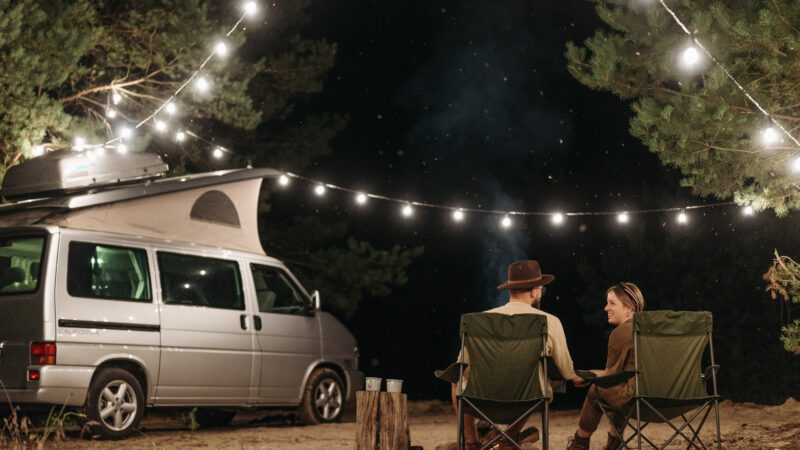Table of Contents Show
Many RVers turn to Facebook for advice. Whether it’s advice about visiting a certain city or what to take on a long hike with kids, asking other RVers can help you avoid mishaps and enjoy the lifestyle.
One Facebook user shared her discontent with living in an RV. She asked for suggestions and encouragement from anyone who has felt the same way.
Let’s take a closer look!
Why Do Some People Choose Full-Time RV Life?
People do the full-time RV life in many different ways. Some people live stationary on their own land or at a local campground.
They still work at a brick-and-mortar business, but they live in an RV instead of having a house. This can potentially be cheaper and create a simpler way of life.
Others choose to travel often and see the country in their RV. They may stay a week or two and then head off to explore another location.
They may feel drawn to the full-time RV life because of the experiences before them — the new places to see, new foods to try, and new people to meet. They want to make memories that will last a lifetime.
Still, others stay in a particular state but travel from one location to another within that state because of work or to lessen road travel.
They may hop from one campground to another as long as they stay within an hour or two of a certain city where they have to drive in to work once or twice a month.
Like folks who remain stationary, this can potentially be cheaper but still allow for some travel.

What Are the Perks of Living Full-Time in an RV?
Depending on how you live, the full-time RV can cost less than living in a sticks-and-bricks house.
But this is very dependent upon the traveler. Folks who usually pay thousands of dollars a month in rent or mortgage may find RV living less expensive when stationary.
But most people choose to live full-time in an RV because of what this lifestyle gives them.
The entire country becomes your playground. Canada and Mexico are also heavily-visited areas. The experience of different cultures and landscapes is a huge perk to the travel lifestyle.
And sharing these moments and memories with loved ones is also important. For some families, living full-time in an RV has brought them closer together. They live more simply and spend more quality time exploring nature.
For couples, this lifestyle has enabled them to do things together they might have never experienced before, like hiking to a mountain peak or paddling the length of a river.
What Are the Struggles to Full-Time RV Living?
But even with these perks, full-time RV living isn’t easy. RVs don’t have much space.
Even the largest Class A motorhomes or fifth-wheel toy haulers are much smaller than a house. Learning to live together in a small area is challenging. Having no privacy can also cause problems.
In addition, constantly having to plan ahead can become tiring. Travelers who aren’t stationary, they must always think of the next location. This can start to weigh heavily on you.
Plus, once you get settled into a new campsite, you only have a few days before it’s time to pack everything up again. The lifestyle can be exhausting.
Finally, the wear and tear of travel on an RV mean things break. Remaining stationary or moving less frequently can help prevent some problems.
But when you’re constantly moving, you’ll find brackets come loose, trim pieces fall off, and fittings on pipes break. Slideouts stop working, hydraulic lines bust, and roofs develop leaks. Maintaining and repairing an RV is expensive and time-consuming.
RVers Asks Facebook If the RV Life Is Right for Her
One RVer asked a Facebook group if it was time to step away from the full-time RV life. She says, “How do you know when RV life just isn’t for you? I’m really torn between understanding if we’re uncomfortable on purpose or just still having a hard time adjusting, and we need to be more patient.”
She explains, “Everything takes so much effort, and I feel like it’s one big thing I could take off my plate if we went back into a permanent home. Let me know if you can relate in any way.”
She’s struggling to feel happy with the lifestyle, finds keeping up the RV almost impossible, and doesn’t like cooking in the rig.
The responses to her post were supportive yet challenging. Many people encouraged her to have a family meeting to share her feelings and ask for help from her husband and kids in the daily tasks of cleaning, cooking, and keeping up the space.
Others shared similar experiences and how they learned to live in a small space and deal with the challenges of RV living over time. Still, others explained they couldn’t keep being miserable and moved back into a house.
Signs That It’s Time to Move Back Into a House
So how do you know the full-time RV lifestyle isn’t for you anymore? Let’s look at several signs that it’s time to move back into a house.
There’s no shame in returning to the way life was. You have to take care of your emotional and mental health and the health of your loved ones.
Increased Relationship Problems
This Facebook user experienced relationship problems. She felt her husband didn’t help out much around the RV and like everything was on her.
If you’re experiencing increased issues with a spouse or child, it might be a sign that it’s time to move back into a house.
Of course, a sticks and bricks home won’t always remove all the challenges and stressors. People may still experience friction, but if it’s never-ending, then it’s not a healthy way to live.

No One Is Happy
If it’s not just you that’s unhappy, it’s a clear sign that this lifestyle isn’t right for your family anymore. Maybe your partner complains every day about the small workspace.
Maybe your teenage daughter has started to distance herself and refuse to go on hikes anymore.
Maybe your child has started to wish for their friends back home. If everyone seems unhappy, it’s time to talk about moving back into a house.
Keep in Mind: We loved our time on the road, but settling down into a home was the right choice for us. Here are 5 reasons why we’re glad we quit full-time RV life.
Meal Time Is Too Stressful
The Facebook user mentioned that she didn’t like cooking in the RV.
She couldn’t do it like she wanted to. RV kitchens are small spaces. You have limited countertop space, the appliances don’t work as well as residential ones, and preparing meals can be stressful.
If you like to cook, you may find dinner time the worst time of the day. This struggle can weigh on everyone, so if your meal times consist of complaining and arguing more than sharing the day’s special moments, you might feel ready to throw in the towel on RVing.
Travel Planning Is a Chore
As mentioned earlier, constant travel planning can become exhausting. It’s certainly a con to the full-time RV lifestyle. With more and more people hitting the road and staying in campgrounds, it’s even more important to book reservations early.
If you’ve come to the point where travel planning isn’t fun anymore, it might be time to settle down.
If you find yourself staying longer in places just so you don’t have to plan the next stop for a while, have a conversation about whether or not it’s time to move back into a house.
More Living Space Has Become a Goal
Finally, the tiny living space of an RV can wear on you. If everyone in the family talks about how they can’t wait to move back into a house or how they can’t wait to have their own rooms, it might be time for a conversation.
Perhaps the experiences and memories of travel have become less important, and more living space has become the goal.
What Should This Facebook User Do?
As mentioned earlier, the comments from other Facebook users encouraged this RVer to have a family meeting.
She needs to share her feelings and struggles with her husband and kids. It sounds like the family needs to accept some responsibilities around the RV.
And then, if this doesn’t help the situation and she still feels unhappy about living in an RV, then it might be time to move back into a house.
Some RVers explained that they tried everything and couldn’t get used to this way of life. It was too stressful, too cramped, and just not as fun as they had imagined. There’s no shame in stepping away from the lifestyle.
If this woman continues to feel the world’s weight on her shoulders, her family will likely return to a house.
Keep in Mind: Are RV Facebook Groups Doing You More Harm Than Good? Let’s see if it’s time for you to ditch the RV Facebook groups.
Have You Ever Seen RV Burn-Out in Your Life?
If you’ve traveled extensively, you’ve probably experienced some RV burnout. Even a cross-country road trip for a few months can cause problems within a marriage or challenges in the kitchen.
Sometimes these feelings disappear, and circumstances change so that the lifestyle continues. Other times the burn-out grows until you have to make a change.
Have you ever felt like it was time to move out of an RV and back into a house?






